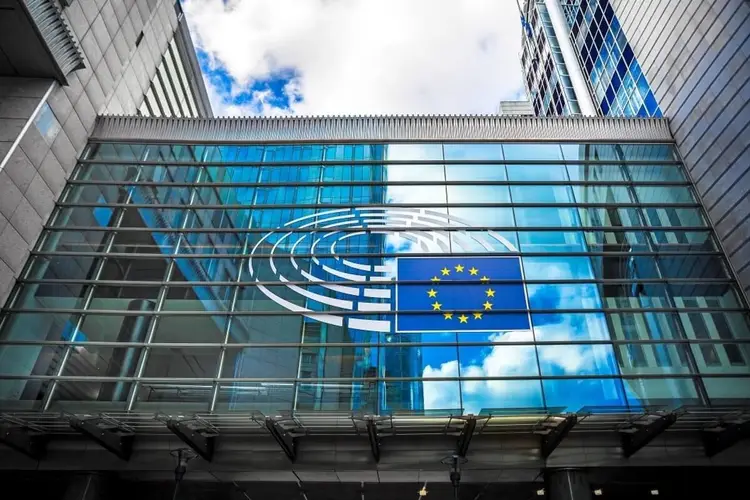Is More Regulation on the Horizon as European Parliament Approves Groundbreaking Anti-Money Laundering Measures for the Cryptocurrency Industry?

Rewritten: Picture this - a stunning image of a beautiful landscape captured by Sergey Kelin, available for purchase on AdobeStock.
The European Parliament gave the green light on Tuesday to fresh regulations which seek to inhibit the utilization of digital currency for laundering illegitimate funds.
The crucial aspect of the new law for cryptocurrency users is that anonymous crypto transactions are now capped at €1,000 ($1,080). This means that when transactions occur between self-hosted wallets where the user cannot be identified, they cannot exceed this amount.
According to a statement released by the European Parliament, organizations like banks, those managing assets and crypto assets, agents for both real and virtual estates, and well-known football clubs will have to confirm the identification of their clients, what they possess and who holds the power in the company.
The article mentioned that those exact businesses would also be required to gather details from their clientele and send it to a single, organized repository.
In addition, they must identify and describe the specific forms of potential money laundering and terrorist financing that may occur within their industry. This information must then be reported to a central database.
The proposal gained support from 99 members of the EU Parliament's committees dealing with Economics and Civil Liberties. On the other hand, only eight members opposed it.
Alongside the fresh regulations regarding cryptocurrency, the law also involves prohibiting payments made by cash to industries that exceed €7,000 ($7,600). Additionally, there are restrictions being placed on programs that offer citizenship and residency in exchange for investment, which are often referred to as "golden passports" and "golden visas."
The law will require the European Council's consent before it is official.
Members of the European Union government are recognized for their strict approach towards cryptocurrencies and have suggested laws in the past to strengthen supervision of decentralized finance (DeFi) procedures.
Recently, the European Union has put into effect a regulatory framework called MiCA. This framework is quite stringent and covers the entire cryptocurrency and stablecoin industry in Europe.











































